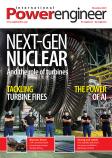Matt Holland discusses data scientists and technology working in tandem across asset-intensive industries
In this new age of knowledge automation, successful business strategies often depend on using skilled data scientists to enhance the advances provided by new technology. This technology will not replace people. In fact, it will serve to enhance talent by unlocking the potential for the digital workforce of the future.
For data scientists working across asset-intensive industries, and for the manufacturers and operators they serve, it’s therefore vital that streamlined data processes and increasingly self-sufficient technology are not seen as a threat but rather, as an opportunity to raise the value skilled workers deliver to data science applications and large-scale projects.
Enabling teams to fulfil their potential
As the roll-out of AI and advanced automation accelerates, organisations need to use these technologies both to better define the roles of employees and to add value to them. Asset-intensive manufacturers and operators need to ensure that engineers have clear job functions that play to their strengths and that internal data scientists have the freedom and flexibility to add value to the business.
In line with this, data scientists must be allowed to evolve their role in delivering success to organisations through the use of advanced technology, helping them streamline engineering and maintenance processes alike.
Today’s data scientists need to understand that technology can act as an ally. Industrial AI solutions can capture knowledge from engineers and analysts in a way not previously achievable. That is especially key for industries that are digitally transforming at the same time as vast amounts of knowledge exit the workforce as workers retire. This knowledge capture will bolster the platform for learning that data science can build on, complementing the role of analysts within the organisation rather than threatening them.
Raising the value of the data scientists’ role
Ultimately, knowledge automation technologies should enable data scientists to focus on more strategic initiatives, positively enriching the data scientist’s role. For example, built-in sensors can flag anomalies or potential errors in software with pinpoint accuracy that can provide clarity to data scientists to make large-scale improvements.
Senior managers must change their mindset and start giving data scientists the opportunity to work on projects where they are likely to have a wider, more profound impact. Creating a distinction between the smaller issues that engineers should tackle and the overarching challenges that are the responsibility of data scientists also helps define job roles.
Another change of mindset that can reap significant business benefits is an organisation’s approach to projects. Implementations based solely on proof of concept or project scale, rarely deliver maximum impact. Larger-scale rollouts often bring faster return on investment, especially when compared with limited in-house data science projects which may not deliver value for months. The time it takes to build, tune, and deploy a data science model is often the biggest challenge for organisations that pursue an in-house approach, and scaling is not easy.
Greater clarity provides greater opportunity
This is where great advantage can be found by working side by side with a packaged outsourced solution delivered by a third-party provider or partner, as it can often bring faster time to value through ease of use, scalability and deployment speed. With greater clarity about their role and responsibilities, data scientists can harness this technology to make enhancements to processes and complex workflows that help to transform the whole organisation’s working model.
In other words, with technology having built the firm foundation, data scientists have the freedom to be more creative, and explore the full potential of their knowledge and expertise to deliver added value to manufacturers and operators, and to the industry as a whole.
Matt Holland is with Aspen Technology


















